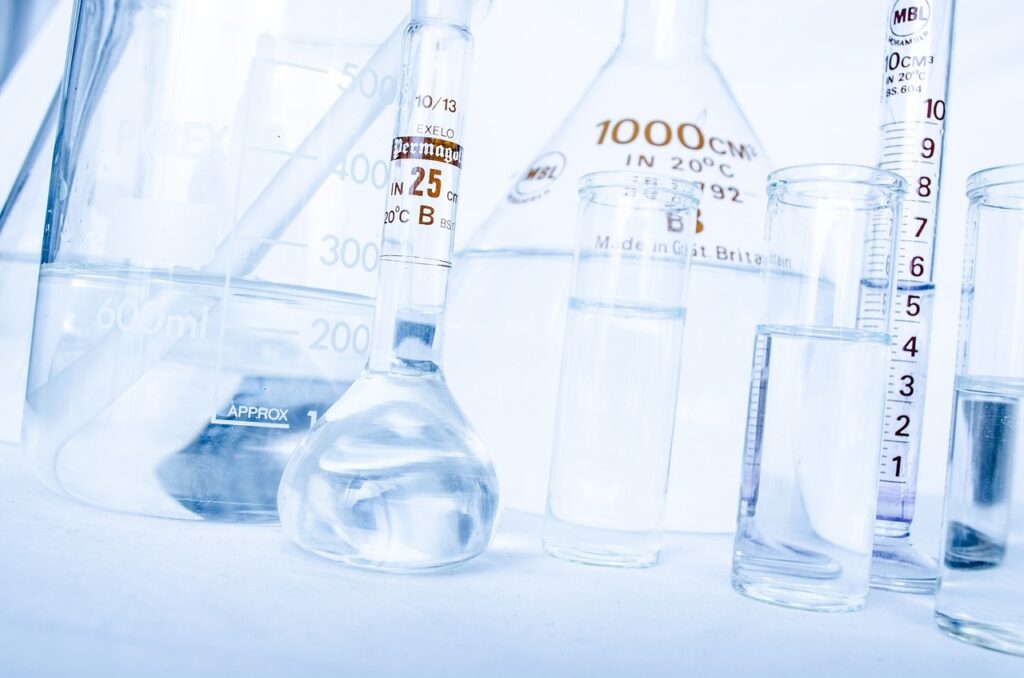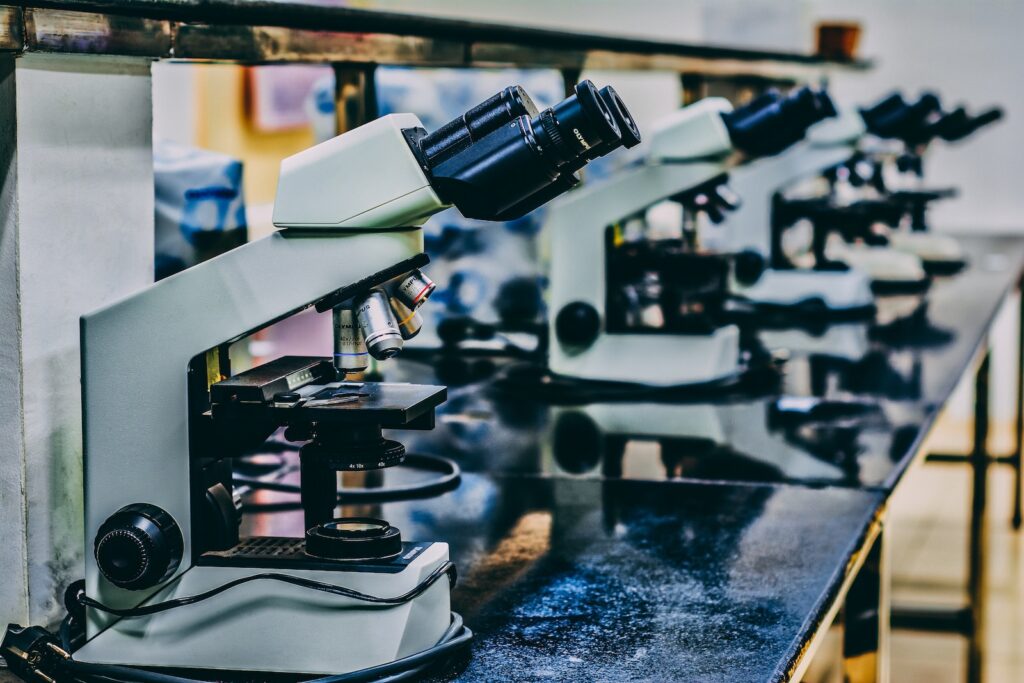Table of Contents
Introduction to innovative approaches in the medical industry
The medical industry is continuously evolving, with new technologies and innovative approaches emerging to enhance patient care.
Innovation has become increasingly crucial in the healthcare field as it not only improves patient outcomes but also streamlines processes, reduces costs and enhances accessibility. Through developing advanced technologies and techniques, medical professionals can better diagnose diseases and find more effective treatments for patients. Innovative approaches are transforming the way people receive healthcare services which ultimately leads to a healthier population overall.
Some of the most significant advancements have been made in precision medicine, telemedicine solutions, AI-powered tools, wearable devices that monitor health conditions non-invasively and strategic partnerships between different sectors like technology companies joining forces with pharmaceutical firms.
Apart from optimizing existing practices within the medical industry through innovation – while improving upon standard practices – innovative approaches may create entirely new avenues previously unexplored. This allows for creative breakthroughs that could change treatment plans altogether or spur brand-new methods for education or diagnosis instead!
The role of technology in transforming the healthcare landscape
Technology has revolutionized the way we live, work and communicate. And now it is transforming the healthcare industry too. With new advancements in technology, medical professionals are able to provide better patient care than ever before.
In recent years, innovative technologies have emerged that are improving diagnosis accuracy, minimizing human error and streamlining treatment methods.
Electronic Health Records (EHRs)
EHRs have been around for a while but their importance has increased significantly over time. They store all your health information in one place allowing physicians to access them easily from anywhere at any given time. Gone are those days when doctors used paper records which might be misplaced or lost completely thereby compromising on patient’s safety.
The Internet of Things (IoT)
IoT refers to devices/sensors connected through internet providing better data collection possibilities for researchers besides helping patients manage chronic diseases like diabetes etc.. IoT allows wearable devices such as smartwatches and fitness trackers collect real-time user data providing crucial insight into patient’s conditions which wasn’t possible before without physically visiting labs multiple times
Telemedicine
Telemedicine is a method enabling remote communication between patients and their doctors via video conferencing tools. It increases accessibility towards remote/distant areas where hospitals or specialty clinics may not exist hence improving overall level of care provided. Technology has transformed every aspect of medicine from diagnostics to disease management & prevention by introducing smarter solutions delivering faster results with limited manual interventions thus increasing efficiency & productivity leading ultimately towards improved outcomes followed by happier healthier patients.
How AI and machine learning are changing patient care
Artificial intelligence (AI) and machine learning have transformed numerous industries, and healthcare is no exception. The ability to quickly analyze vast amounts of data has given doctors and researchers powerful new tools to diagnose diseases, choose treatments, monitor patients in real-time, and more.
Predictive analytics: AI-based predictive analytics systems can sift through large amounts of medical data—lab results, imaging studies, genetic testing—and identify patterns that humans might miss. For example, an AI system might detect subtle changes in a patient’s blood work that indicate the onset of a particular disease before symptoms appear. This early detection could lead to earlier treatment or preventative measures.
Disease diagnosis: Machine learning algorithms can be trained on tens of thousands—or even millions—of medical images to learn how different conditions appear on scans such as X-rays or MRI’s. Using this knowledge base, machines may be able to make highly accurate diagnoses for specific conditions like cancer or heart disease just by looking at the images generated from these tests.
Treatment planning: Healthcare providers can also use machine learning models to perform complex analyses quickly so they can make informed decisions about which treatments will be effective for certain patients based on their unique health profiles.
In addition, AI-powered chatbots can help answer basic questions about medications or guide patients through home exercises post-op while remote monitoring solutions allow physicians to track vital signs without having the patient come into their office regularly.
The potential benefits that come with using artificial intelligence in medicine are undeniably exciting – improved outcomes resulting from more accurate diagnoses & faster analysis times lessening time between initial consultation and treatment commencement; personalized attention provided efficiently by non-human staff members like chatbots or virtual assistants and a more efficient healthcare system overall.
Innovative pharmaceuticals and drug discovery methods
With new diseases emerging and existing illnesses becoming harder to treat, innovation is key in the pharmaceutical industry. To address these challenges, scientists are developing novel drugs that target a variety of mechanisms within the human body.
One such innovative approach is gene therapy. This technique uses DNA as a therapeutic agent to replace or modify genes responsible for disease development. Gene therapies have already shown promising results in treating rare genetic disorders like cystic fibrosis and sickle cell anemia.
Another area of focus is developing immunotherapies that use the body’s natural immune system to fight cancer cells. By boosting the immune system’s response, researchers have been able to develop treatments with fewer side effects than traditional chemotherapy regimens.
Nanotechnology has also found its way into drug discovery research, improving drug efficacy by allowing for targeted delivery of small molecules directly into cells via nanoparticles. This technology could potentially revolutionize how we design drugs by increasing their bioavailability while decreasing unwanted interactions with healthy tissues.
“Innovative pharmaceuticals have changed how we think about disease treatment,” says Dr. James Smith from Johns Hopkins Medical Center. “By targeting specific biological pathways rather than just symptom relief, we’re seeing better outcomes for patients across many different conditions.”
The future looks bright for innovative approaches to drug discovery — advances in technologies like machine learning and artificial intelligence promise faster identification of therapeutic targets from large data sets; while collaborations between academic institutions and private companies will likely continue creating more ground-breaking discoveries.’
Improving clinical trials through virtual trials and real-world data collection
In recent years, the medical industry has been revolutionized with innovative approaches to clinical trials. One such approach is virtual trials or decentralized clinical trials that are conducted remotely while maintaining data integrity and patient safety. Virtual trials eliminate the need for patients to physically visit a research center or clinic, which saves time and money for both researchers and patients. Patients can participate in these studies from their homes, using wearable tech devices to track vital signs, medication compliance, and other health metrics.
Another method that has been gaining ground is real-world data (RWD) collection. RWD refers to health-related information collected passively through electronic health records (EHR), mobile apps, social media platforms, wearables devices, etc., that can aid researchers in various stages of drug development cycles. The benefit of RWD lies in its ability to provide valuable insights on new therapies’ efficacy beyond traditional clinical trial settings by enabling retrospective analysis under ‘real-world’ conditions.
Integrating virtual trials with RWD creates unique opportunities for generating meaningful insights into healthcare delivery outcomes over longer durations at lower costs than traditional models; hence it suggests a more promising future direction for conducting clinical research. Ultimately this means more efficient drug approval processes resulting from higher quality evidence captured across greater numbers of participants faster. The utilization of emerging technologies accelerates these capabilities further as well making it an exciting space being increasingly explored by leading medical organizations globally
The future of personalized medicine: genetics, epigenetic testing, & precision medicine
Personalized medicine is revolutionizing healthcare and transforming the way we treat patients. With the advancements in technology and data analytics, it has become possible to develop treatments tailored to a patient’s specific genetic makeup.
Genetics:
By analyzing an individual’s genetic material or DNA through genomic sequencing, doctors can identify any mutations that might increase the risk of developing certain diseases. This information allows physicians to create a preventative care plan for their patients to reduce or eliminate this risk entirely.
Epigenetic Testing:
In addition to genetics testing, epigenetic testing studies how your environment influences gene expression. Factors such as lifestyle choices (stress management, nutrition) and exposure (pollutants) all play apart in activating/deactivating genes relevant predispositions.
This knowledge is key for clinical research behind new medications targeting disease based off of these triggers which would previously not be identified.
Precision Medicine:
Precision medicine uses the data from both genetics/genomics along with environmental factors like diet/physical activity/stress levels/sleep patterns etc., The amalgamation helps practitioners form treatment plans better attacking health problems at its root cause rather than just alleviating symptoms
The use of big-data analytics coupled with machine learning algorithms can help generate results historically unimaginable by being able predict variant responses within similar individuals responses toward medication/disease allowing medical professionals fine tune their approach and yielding greater positive outcomes overall




